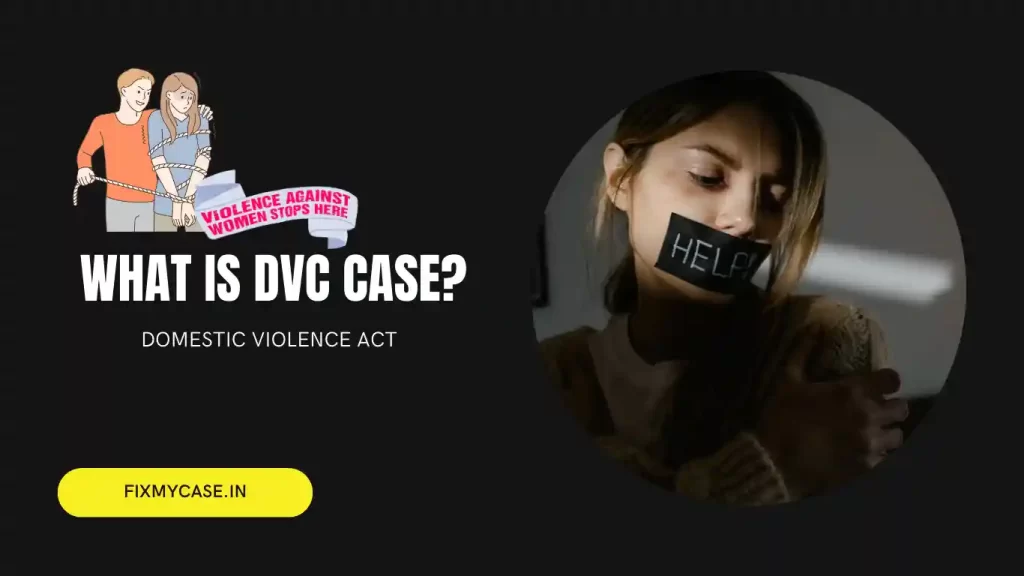DVC is a domestic violence case. It refers to legal proceedings related to incidents of domestic violence. In India, domestic violence is governed by the Protection of Women from Domestic Violence Act, 2005 (PWDVA).
The PWDVA provides a legal framework to protect the rights of domestic violence and victims. This also applies to women in a family relationship with an abuser, whether they are married, divorced, separated or in a live-in relationship. The Act not only defines various types of domestic violence but also provides relief and protection measures to the victims.
A DVC case can be initiated by the victim or someone on their behalf by filing an application or complaint in the appropriate court. Depending on the circumstances of the case, the court can grant various reliefs such as protective orders, residential orders, monetary relief, child custody etc.

It is important to note that domestic violence cases can be filed in the Magistrate’s Court having jurisdiction over the area where the victim resides or the area where the incidents of domestic violence took place. Court proceedings in DVC cases are generally conducted in such a way as to ensure the privacy and confidentiality of the victim.
If you believe you are a victim of domestic violence or are seeking legal guidance regarding a DVC case, it is best to consult an attorney who specializes in family law or domestic violence cases. They can give you the legal advice you need and help you navigate the legal process.
